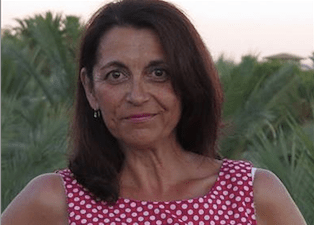-

Neil Weisensel is an opera composer and conductor based in Winnipeg, Canada. His eight critically and popularly acclaimed operas have been performed over 240 times across Canada and the United States. On March 9th, 2019 the Regina Symphony Orchestra premiered his newest work, a music theatre piece about Louis Riel entitled Li Keur: Riel’s Heart of the North (libretto by Suzanne Steele). This piece will also be performed by the Winnipeg Symphony in October 2021. Vancouver Opera premiered Neil’s anti-bullying opera Stickboy (libretto by spoken word superstar Shane Koyczan) in October of 2014. In 2016 Winnipeg’s Little Opera Company presented the world premiere of his 1997 opera Merry Christmas Stephen Leacock, which was subsequenty remounted by Saskatoon Opera and the Saskatoon Symphony in fall of 2018.
Neil collaborated with Michael Bublé on a set of big-band music and co-wrote a few songs, one of which garnered a Genie nomination in the Best Song category for the film Here’s To Life. With his wife, the vocalist/songwriter Rachel Landrecht, Neil has performed for former US President Bill Clinton, Oscar-winner Al Gore, Prime Minister Justin Trudeau and a host of other luminaries.
Neil has received grants, awards and fellowships from the National Endowment for the Arts (U.S.), the Canada Council for the Arts, The Social Sciences and Humanities Research Council (SSHRC), the Manitoba, Winnipeg, and British Columbia Arts Councils, and the Banff Centre for the Arts, among others. His concert music, stage works and arrangement have been performed by the Victoria Symphony Orchestra, Vancouver Opera, the Arts Club Theatre (Vancouver), Opera Lyra Ottawa, the Royal Winnipeg Ballet, Vancouver New Music, the Winnipeg Philharmonic Choir, the Vancouver Philharmonic Orchestra, Edmonton Opera, The Winnipeg Symphony Orchestra, the Vancouver Intercultural Orchestra, and Edmonton’s Hammerhead Consort. Neil serves as Adjunct Professor (Theory, Composition) at Canadian Mennonite University in Winnipeg, where he lives with Rachel and daughter Miracle.
-

Dr. Suzanne Steele is an award-winning poet, installation artist, librettist, and scholar. She is Métis (Gaudry and Fayant) with roots that extend back to the first families (French and Anishinaabe). She graduated from the University of Exeter (UK) in 2017, her undergraduate degree is in Music (voice) from UBC, and she has a Master of Library and Information Science from the University of Western Ontario. Dr. Steele has won, with Neil Weisensel, a Social Sciences and Humanities Research Council (SSHRC) Award to establish a database of aesthetic translations of Indigenous languages (Saulteaux, Cree-Michif, or Heritage/Southern Michif, and French-Michif). Dr. Steele was recently made an Honorary Senior Research Fellow of the University of Exeter, UK.
Dr. Steele has taught Métis cultural history, poetry of the First World War, and creative writing in Canadian and UK universities. Her work has been broadcast to 11 million worldwide (BBC World Service, CBC, NPR), presented and performed internationally, and is studied internationally at the PhD, Master, and high school levels. She has read extensively at literary festivals and given papers in Oxford, London, St Andrews, Scotland, Amiens, France, and other locations. Dr. Steele’s current research is in the aesthetic translation of Indigenous languages. Past research includes narrative studies, ethics, and the artistic challenge of representing war beyond tropes of combat.
From 2008-2010 Dr. Steele served as an Official Canadian War Artist, Canada’s first poet sent into a war zone (Afghanistan) in the 101-year history of Canadian War Artists. She was embedded over an 18 month period with the First Battalion Princess Patricia’s Canadian Light Infantry (1PPCLI) and visited them outside the wire in Afghanistan in 2009. In 2012 Suzanne and composer Jeff Ryan premiered their critically successful symphonic/choral work, Afghanistan: Requiem for a Generation, a major commission from the Calgary Philharmonic Orchestra, a work based on Steele’s observations of a Canadian infantry battalion going to war and returning. This war requiem, sensitively and movingly composed and orchestrated by Ryan, was broadcast nationally and internationally and was recently performed by the Vancouver symphony in January 2017. It returned again in November 2017 in Calgary and Toronto. The requiem has been recorded for future commercial release.
Dr. Steele would like to extend her gratitude to the Canada Council New Chapter Awards, the BC Arts Council, the Social Sciences and Humanities Research Council, and many more organizations and individuals, for this opportunity to explore the heart of the north, the traditional homelands of her people. She would especially like to thank her agent Ian Arnold of Catalyst TM (Toronto), and all the artists and translators that are participating in this project. Suzanne lives with musician and adventurer, Jeff Hilberry, and daughter, Ella Speckeen, a Métis fiddler now studying archeology at the University of Oxford (UK). In 2015, Steele and Hilberry traversed the North Saskatchewan in their 17’ sailboat, Miss Moose, from the Rocky Mountains to Lake Winnipeg. They were the first sailboat to travel the length of the old river highway of Steele’s ancestors, since the York boats of over a century ago.
-

Video recording of A29, read by translator Donna Beach. From Act 2, Scene 5, character Marie asks Josette why she is upset and is considering leaving.
-

Video recording of A28, read by translator Donna Beach. From Act 2, Scene 5, character Josette explains why she is upset and is considering leaving.
-

Video recording of A27, read by translator Donna Beach. From Act 2, Scene 5, character Josette explains why she is upset and is considering leaving.
-

Video recording of A26, read by translator Donna Beach. From Act 2, Scene 5, character Josette explains why she is upset and is considering leaving.
-

Video recording of A25, read by translator Donna Beach. From Act 2, Scene 5, character Josette explains why she is upset and is considering leaving.
-

Video recording of A24, read by translator Donna Beach. From Act 2, Scene 5, character Josette explains why she is upset and is considering leaving.
-

Video recording of A23, read by translator Donna Beach. From Act 2, Scene 5, character Josette explains why she is upset and is considering leaving.
-

Video recording of A22, read by translator Donna Beach. From Act 2, Scene 5, character Josette explains why she is upset and is considering leaving.
-

Video recording of A21, read by translator Donna Beach. From Act 2, Scene 5, character Josette explains why she is upset and is considering leaving.
-

Video recording of A20, read by translator Donna Beach. From Act 2, Scene 5, character Josette explains why she is upset and is considering leaving.
-

Video recording of A19, read by translator Donna Beach. From Act 2, Scene 5, character Josette explains why she is upset and is considering leaving.
-

Video recording of A18, read by translator Donna Beach. From Act 2, Scene 5, character Josette explains why she is upset and is considering leaving.
-

Video recording of A17, read by translator Donna Beach. From Act 2, Scene 5, character Marie asks Josette why she is upset and is considering leaving.
-

Video recording of A1, read by translator Donna Beach. From Act 2, Scene 5, character Marie asks Josette why she is upset and is considering leaving.
-

Video recording of A15, read by translator Donna Beach. From Act 2, Scene 5, character Marie asks Josette why she is upset and is considering leaving.
-

Video recording of A14, read by translator Donna Beach. From Act 2, Scene 5, character Marie asks Josette why she is upset and is considering leaving.
-

Video recording of A1, read by translator Donna Beach. From Act 2, Scene 5, character Marie asks Josette why she is upset and is considering leaving.
-

Video recording of A12, read by translator Donna Beach. From Act 2, Scene 5, character Marie asks Josette why she is upset and is considering leaving.
-

Video recording of A10, read by translator Donna Beach. From Act 2, Scene 5, character Marie asks Josette why she is upset and is considering leaving.
-

Video recording of A10, read by translator Donna Beach. From Act 2, Scene 5, character Marie asks Josette why she is upset and is considering leaving.
-

Video recording of A6, read by translator Donna Beach. From Act 2, Scene 5, character Josette explains why she is upset and is considering leaving.
-

Video recording of A5, read by translator Donna Beach. From Act 2, Scene 5, character Josette explains why she is upset and is considering leaving.
-

Video recording of A4, read by translator Donna Beach. From Act 2, Scene 5, character Josette explains why she is upset and is considering leaving.

























